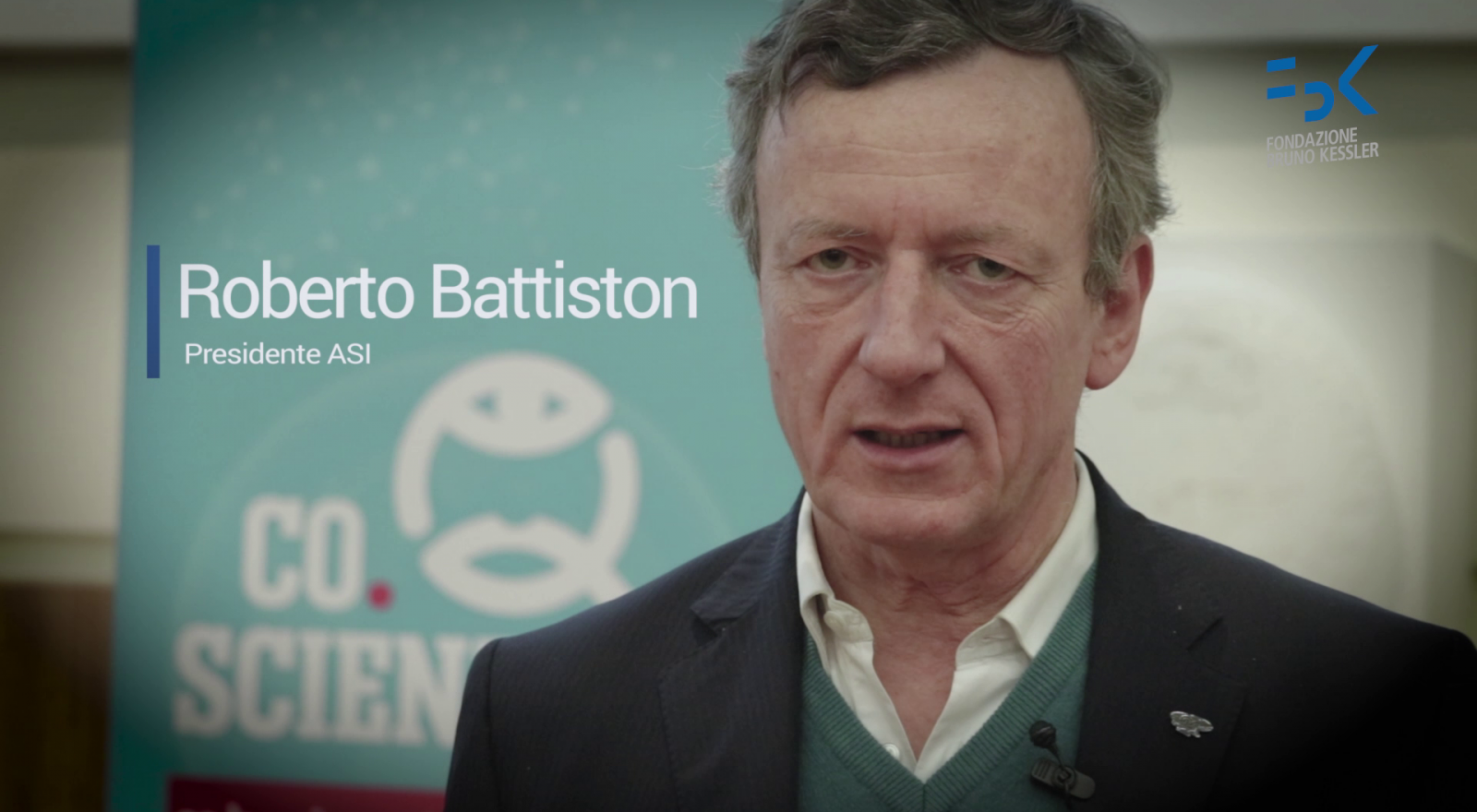Is space curiosity or business?
At the opening of the Co.Scienza festival, the president of the Italian Space Agency Roberto Battiston and the science popularizer Adrian Fartrade were the protagonists of a lively debate about the ultimate goal of space exploration
«Space is romantic, but also an economically complex engine». Roberto Battiston, president of the Italian Space Agency, thus summarized – on March 5 – the theme of the first debate of Co.Scienza, the science festival organized by the university student associations UNITIN and OWL, which saw him starring alongside the historian of science and science popularizer Adrian Fartrade.
The meeting, titled “Ulysses in Space” and moderated by Gianluigi Casse, director of FBK’s CMM (Center for Materials and Microsystems), focused on a dichotomy that has always been relevant when it comes to space exploration and scientific research in general: do we try to reach “new worlds” just prompted by curiosity or to promote technological progress and have a profit also in economic terms?
According to Battiston, “the starting point of natural sciences is always an impulse to understand, which then leads to a technological development from which other new discoveries can arise, and so on”.
But what is the value of the space industry today? In 2016, the turnover of the space economy was 329 billion euros, and is destined to grow a lot in the next few years. «Space, today, is in our pockets, thanks to GPS navigators – Battiston recalled the audience – and satellite data are already used in many sectors such as precision agriculture, meteorology and naval transport».
Fartrade, with a histrionic approach that captured the public, shifted the attention to the history of space exploration, underlining how often the technological impact of a great discovery is not “visible” right away. “When, in the 19th century, the first electrical devices such as the light bulb were developed, there was a lot of skepticism. It was deemed an expensive and unreliable technology. Today electricity makes the world go round”.
In the background there is also the great dream of the colonization of Mars, fueled also by the recent launch of the Falcon Heavy by Elon Musk. But when will we get there? According to Battiston, “the men and women who will set foot on Mars have already been born”. And to get there we will use the dreams of a modern visionary, like Musk, but also a fat wallet.


